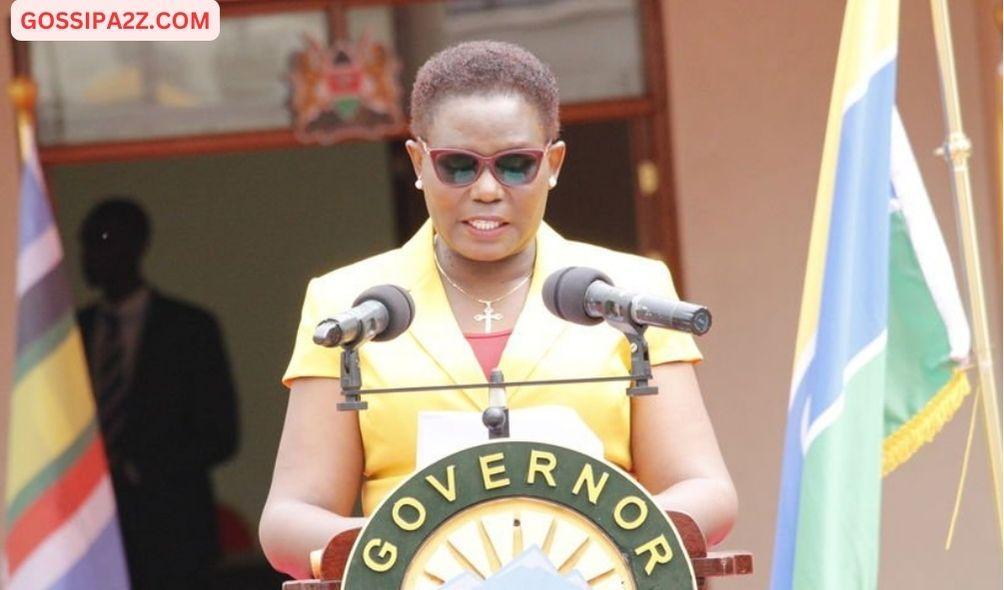Controller of Budget Declines to Stop Mwangaza from Withdrawing Money from Revenue Fund
Political turmoil in Meru County has intensified as Dr. Margaret Nyakang’o, the Controller of Budget, has firmly opposed calls to suspend the financial authority of impeached Governor Kawira Mwangaza.
The unrest in Meru has now entered its second day, with residents growing increasingly discontented with the governor’s continued presence despite her impeachment.
Senator Kathuri Murungi urgently urged Nyakang’o to restrict Mwangaza’s access to the County Revenue Fund, arguing that the Senate’s majority vote for her impeachment should bar her from authorizing financial transactions.
Nyakang’o, however, denied this request, referencing a High Court ruling that temporarily blocked Mwangaza’s removal, thereby allowing her to remain in office until further judicial decisions are made.
In a letter to Senator Murungi on August 27, Nyakang’o explained, “The court order halting the Senate’s decision effectively allows Governor Mwangaza to stay in office.”
She continued, “As long as the court upholds this order, the Governor is authorized to approve the Appropriation Bill and manage withdrawals from the Meru County Revenue Fund.”
This legal predicament has resulted in an unusual situation where an impeached governor, whose leadership is widely contested, still holds executive power.
Mwangaza, who faced her third impeachment on August 21, was convicted on all charges, including severe constitutional breaches and abuse of office.
Although the Senate overwhelmingly voted for her removal during a late-night session, the High Court’s intervention has kept her in office for now.
ALSO READ:
- Inside Job Exposed: Kenyan Prison Wardens Convicted for Orchestrating Daring Terrorist Escape
- Uganda Pulls the Plug: Nationwide Internet Blackout Ordered Days Before Crucial General Election
- African Elections Under the Spotlight as Zambia Turns to Kenya Ahead of 2026 Vote
- “Two Drug Barons in Cabinet?” Kenya Government Fires Back as Ex-Deputy President Sparks Explosive Drug Claims
- Kenyan Court Freezes Use of Private Lawyers by Government, Sparks Nationwide Legal Storm
The court is scheduled to review the case on September 17, 2024, to evaluate adherence to its orders and potentially schedule further proceedings. Until then, Mwangaza remains the governor, fueling discontent among residents.
Protests have erupted throughout the county, with demonstrators calling for Mwangaza to step down immediately. Tensions rose outside the county government offices on Tuesday, where protesters accused the governor of illegally remaining in office.
The police had to use teargas to disperse the crowd after fires were ignited outside the building. Residents claimed Mwangaza had “sneaked” into her office using an unmarked vehicle, which further inflamed their anger.
The ongoing crisis in Meru highlights the deep divisions within the county, with the legal disputes over Mwangaza’s impeachment overshadowing effective governance.
The High Court’s decision to stay her removal has not only extended the political turmoil but also raised concerns about the extent of judicial influence in executive matters.
As the situation unfolds, national attention remains on Meru County, where the legal impasse has become a significant source of public unrest.
The outcome of this case could have broader implications, potentially influencing how impeachment processes and judicial reviews are conducted within Kenya’s dynamic political environment.
Controller of Budget Declines to Stop Mwangaza from Withdrawing Money from Revenue Fund
